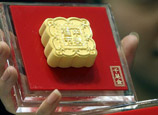
Kitera expected better and friendlier relations this year as the countries mark the 35th anniversary of the signing of China-Japan Treaty of Peace and Friendship, a key document that requires a peaceful resolution for bilateral disputes.
Zeng Guangming, in his sophomore year as a Japanese language major at the Beijing Foreign Studies University, said public diplomacy might be "a new starting point" for easing tension.
"Civilian exchanges had worked more than 40 years ago when both countries normalized diplomatic relations," Zeng said.
The top priority for both the ambassador and the Japanese prime minister is to "find the structural problem and contradiction (that lie in between) and then search for an impetus to achieve a breakthrough", Liang Yunxiang said.
Lu Yaodong, director of the department of Japanese diplomacy of the Institute of Japanese Studies at the Chinese Academy of Social Sciences, warned that there are lingering contradictions on China-related policies by the new Japanese cabinet.
"Japanese Prime Minister Shinzo Abe has vowed to ensure the concept of bilateral strategic and mutually beneficial relationship, yet he has also denied the existence of the Diaoyu Islands dispute, which has led to conflicting proposals," Lu said.















 "Food is the paramount necessity of life", so neither trivial nor minor is our daily eating.
"Food is the paramount necessity of life", so neither trivial nor minor is our daily eating.


![]()
